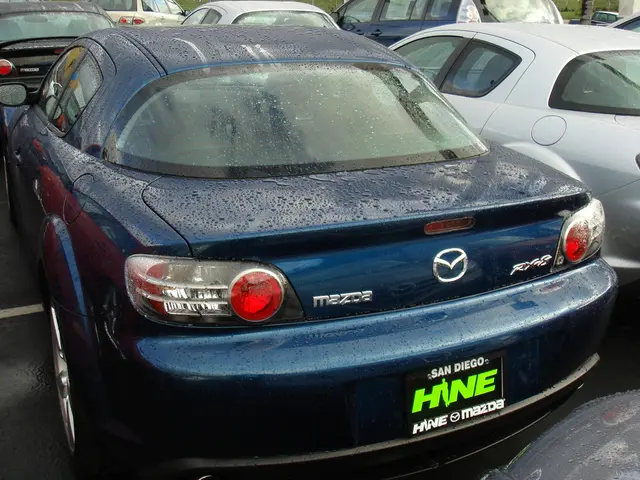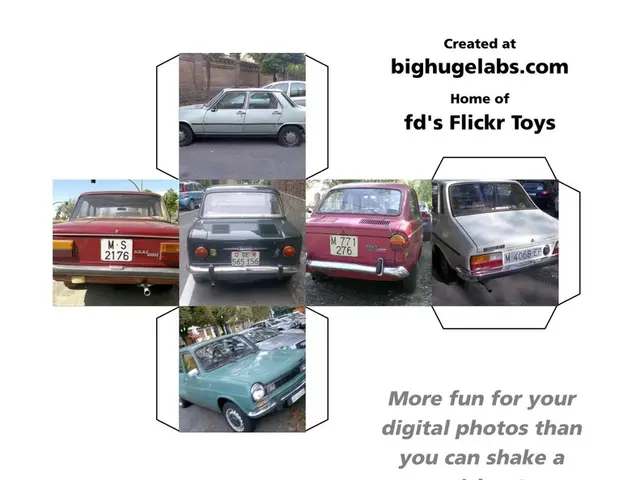Flixtrain acquires sixty-five newest train models.
FlixTrain Places Billion-Euro Order for 65 High-Speed Trains
The long-distance bus operator Flix has placed an order worth up to €2.4 billion for 65 high-speed trains in a move to expand its rail services beyond Germany. Spanish manufacturer Talgo will provide the trains, while Siemens Mobility will supply the locomotives, as announced by Flix on Tuesday. The order includes maintenance contracts with Talgo, with around €1 billion already committed. Among the banks involved in financing the deal are Deutsche Bank and UniCredit.
André Schwämmlein, CEO and co-founder of Flix, said, "We are pursuing a long-term strategy with Flixtrain and will significantly expand our offer in the coming years." The new trains will enable Flix to tap into the significant market potential in Germany and Europe.
Currently, Flixtrain serves 50 cities in Germany, with its cooperation partners extending its reach to 650 destinations. Schwämmlein stated, "We see Flixtrain as a European product. Starting from our home market, we want to make the offer available in other countries as well." The delivery date for the trains remains undisclosed, as train orders usually take several years.
Flixtrain is a brand of the Munich travel platform Flix, known for its environmentally friendly long-distance buses. Its main shareholders are the Swiss holding company of logistics entrepreneur Klaus-Michael Kuhne and the Swedish financial investor EQT. Flix is one of the few competitors of Deutsche Bahn in long-distance traffic, which currently holds a market share of around 95%.
With the addition of 65 new trains, Flixtrain would almost quintuple its train fleet. So far, the company has relied on partner companies to provide the trains for its offers on the rails, focusing on the heavily demanded and lucrative main routes such as from Berlin to the Rhineland, Hamburg, Frankfurt, or Baden-Württemberg.
The announcement is considered a positive signal for rail passengers, according to the managing director of the interest group Allianz pro Schiene, Dirk Flege. He said, "Especially in cross-border rail traffic, there is a huge potential. Passengers can look forward to offer improvements in the coming years."
However, experts also view the order of new trains as risky, given the complex framework conditions in long-distance traffic. Rail expert Christian Böttger from the University of Applied Sciences and Arts in Berlin noted, "A significant problem is overloading. The railway network is too full. The discussion is more about reducing the number of train journeys rather than adding new ones."
This significant investment by FlixTrain poses a challenge to Deutsche Bahn's dominance in the German rail market, potentially eroding DB's market share especially on high-demand routes. The new trains will feature modern amenities such as Wi-Fi, power outlets, and accessible designs, setting new standards for passenger experience, compelling DB to upgrade its aging ICE fleet and improve service reliability to remain competitive. Furthermore, FlixTrain's pan-European reach with the interoperable Talgo 230 trainsets could pressure DB to enhance its international offerings.
The German government welcomes FlixTrain's investment, viewing it as a positive signal that could foster more competition and innovation in rail services. Government plans for rail infrastructure improvements and regulatory reforms in track access may further facilitate private operators like FlixTrain. Despite some criticisms of FlixTrain's service reliability and comfort compared to DB, the investment in new high-speed trains marks a transformative shift in German rail competition and passenger options.
The significant investment by FlixTrain in high-speed trains could signal a shift in the automotive and transportation industry, as these new trains are expected to challenge Deutsche Bahn's dominance in finance and the German rail market. With modern amenities such as Wi-Fi, power outlets, and accessible designs, FlixTrain is setting new standards in the finance and industry sectors for passenger experience.








